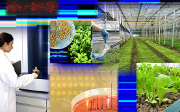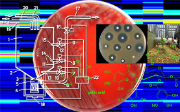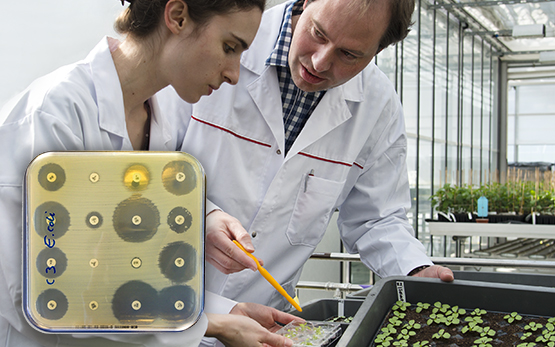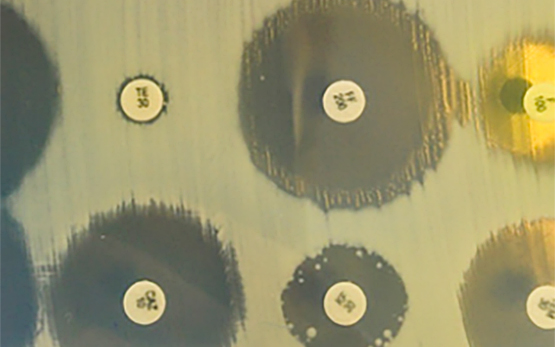The selected areas of food production dealt with in the research programme are (1) the production of plant-based foods, (2) the dairy industry, and (3) pig husbandry.
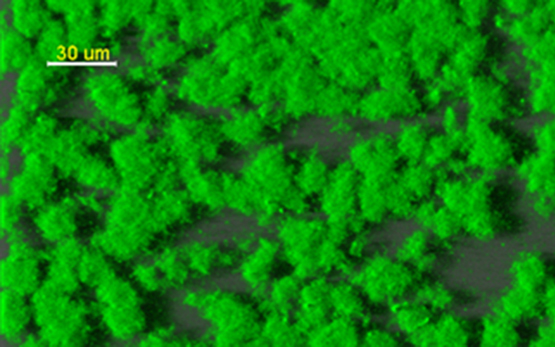
Photo: Agroscope, Maria-Theresia Gekenidis
Glossary
Antibiotic resistance (ABR) describes the ability of microorganisms to suppress the effect of antibiotically active substances.
Persistence is the ‘stubborn’ colonisation of an organism in a system. This can occur in food processing, e.g. when bacteria remain in pipes despite proper cleaning.
Biofilms consist of extra-cellular substances in which microorganisms are embedded. They develop when microorganisms colonise surfaces. There are biofilms everywhere (e.g. dental plaque).
Further Information
Research Project


